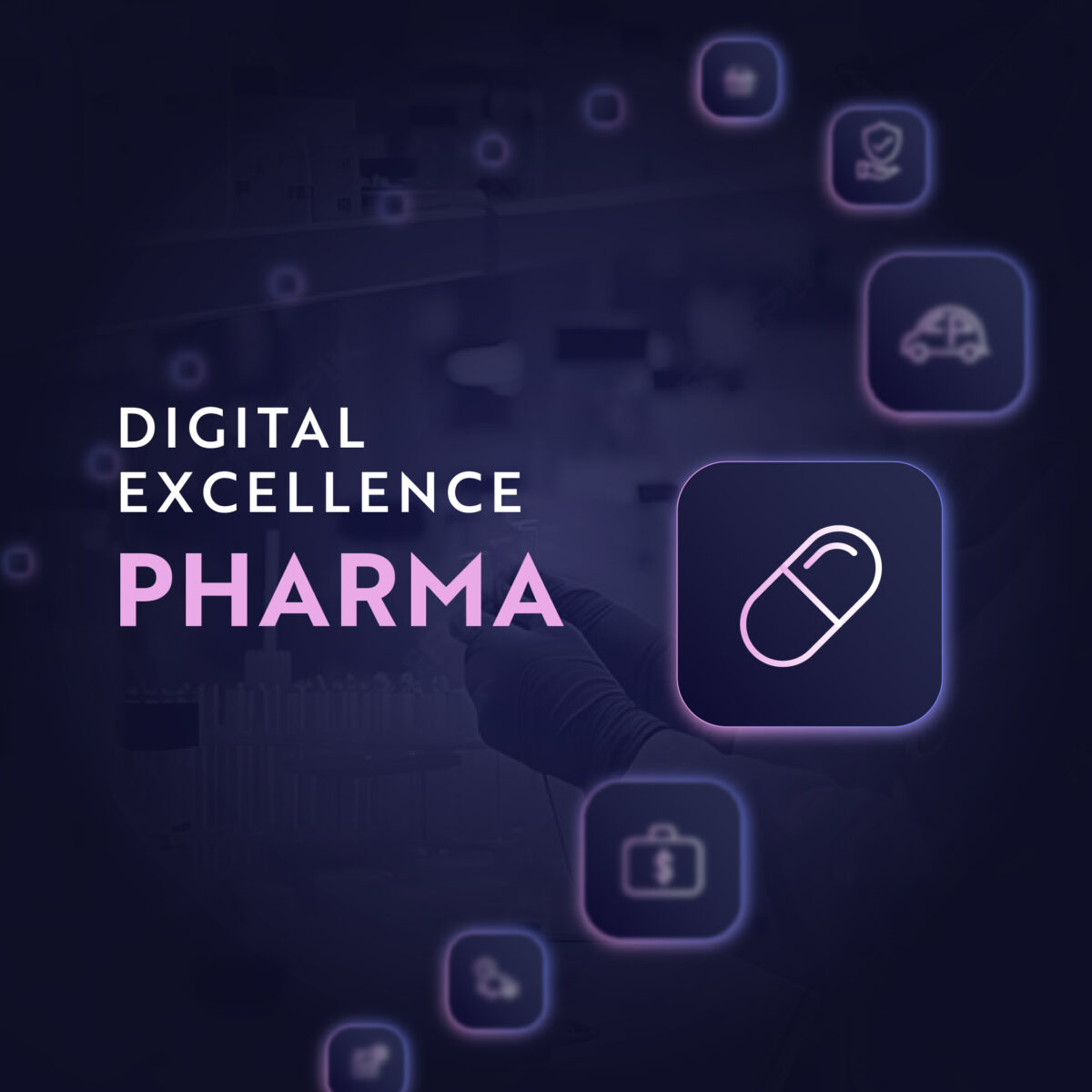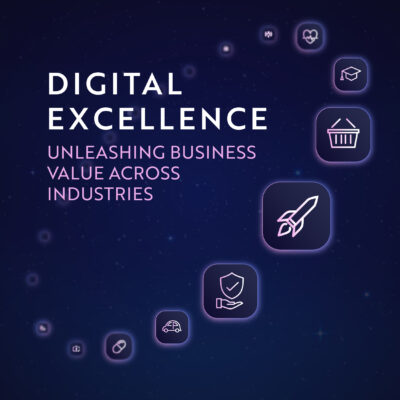
The pharmaceuticals, life sciences, and biotech industries are at the forefront of scientific discovery and innovation. As these sectors face increasing pressure to accelerate drug development, improve patient outcomes, and reduce costs, digital transformation has emerged as a crucial enabler of progress. This article explores how digital technologies are reshaping these industries and provides strategic insights for executives seeking to achieve digital pharmaceutical excellence and unlock business value.
Impact Assessment: Key Technologies Transforming the Industry for Pharmaceutical Excellence
- Artificial Intelligence (AI) and Machine Learning:
- Drug Discovery: AI algorithms analyze vast datasets to identify potential drug candidates, predict their efficacy, and optimize development timelines. This accelerates the drug discovery process and reduces costs.
- Clinical Trials: AI enhances patient recruitment, monitors trial progress, and analyzes outcomes, improving trial efficiency and success rates.
- Big Data and Analytics:
- Personalized Medicine: Data analytics enable the development of personalized treatment plans based on genetic, environmental, and lifestyle factors, improving patient outcomes.
- Real-World Evidence: Analyzing real-world data provides insights into drug safety and efficacy, supporting regulatory decisions and post-market surveillance.
- Internet of Things (IoT) and Wearables:
- Remote Patient Monitoring: IoT devices and wearables collect real-time health data, enabling continuous monitoring and early intervention for patients with chronic conditions.
- Smart Laboratories: IoT sensors enhance laboratory efficiency by monitoring equipment performance, optimizing resource use, and ensuring data integrity.
- Blockchain:
- Supply Chain Security: Blockchain enhances transparency and traceability in the pharmaceutical supply chain, reducing the risk of counterfeit drugs and ensuring product authenticity.
- Clinical Trial Integrity: Blockchain secures clinical trial data, ensuring transparency and preventing data tampering.
- Robotics and Automation:
- Manufacturing Efficiency: Robotics automate repetitive tasks in pharmaceutical manufacturing, increasing production speed and reducing human error.
- Laboratory Automation: Automated systems streamline laboratory workflows, improving accuracy and productivity.
Benefits and Challenges
- Benefits:
- Accelerated Innovation: Digital technologies expedite research and development processes, enabling faster time-to-market for new therapies and treatments.
- Improved Patient Outcomes: Personalized medicine and remote monitoring enhance patient care, leading to better health outcomes and patient satisfaction.
- Operational Efficiency: Automation and data analytics optimize manufacturing and supply chain operations, reducing costs and improving resource allocation.
- Challenges:
- Data Privacy and Security: The collection and use of sensitive patient data raise privacy concerns, necessitating robust data protection measures.
- Regulatory Compliance: Navigating complex regulatory environments requires careful planning and adherence to industry standards.
- Technological Integration: Integrating new digital technologies with existing systems can be challenging, particularly for legacy organizations.
Strong Use Cases
- AI-Driven Drug Discovery:
- Companies like Insilico Medicine use AI to identify potential drug candidates and predict their success, reducing research time and costs.
- Remote Patient Monitoring:
- Devices like Fitbit and Apple Watch enable continuous health monitoring, providing healthcare providers with real-time data to support patient care.
- Blockchain for Supply Chain Transparency:
- Pharma companies use blockchain to track the journey of drugs from production to distribution, ensuring authenticity and reducing the risk of counterfeit products.
Compelling Case Studies for Pharmaceutical Excellence

Novartis: AI-Powered Drug Development
Novartis has partnered with AI firms to accelerate its drug discovery and development processes. By leveraging AI algorithms to analyze vast datasets, Novartis can identify promising drug candidates more efficiently, reducing time-to-market and development costs. This approach demonstrates the transformative potential of AI in the pharmaceutical industry.

Pfizer: Blockchain for Clinical Trials
Pfizer is exploring blockchain technology to improve the transparency and integrity of clinical trials. By securing trial data on a blockchain, Pfizer ensures that data is tamper-proof and accessible, enhancing trust and compliance with regulatory requirements. This initiative highlights the potential of blockchain to revolutionize clinical research processes.
Main Recommendations to Drive Pharmaceutical Excellence
- Invest in AI and Data Analytics:
- Prioritize investment in AI and data analytics to accelerate drug discovery, optimize clinical trials, and develop personalized medicine solutions. Embrace data-driven decision-making to enhance innovation and efficiency.
- Enhance Patient-Centric Care:
- Leverage IoT and wearable technologies to support remote patient monitoring and personalized treatment plans. Focus on improving patient outcomes and satisfaction through innovative care models.
- Utilize the Digital Maturity Index (DMI):
- Conduct regular DMI assessments to evaluate digital capabilities, identify gaps, and develop strategic roadmaps for transformation. Use these assessments to guide decision-making and prioritize initiatives.
- Strengthen Data Security and Compliance:
- Implement robust data protection measures and ensure compliance with regulatory requirements. Develop a comprehensive cybersecurity strategy to safeguard sensitive patient information.
- Foster a Culture of Innovation:
- Encourage a mindset of experimentation and agility within the organization. Support initiatives that drive digital transformation and empower employees to adapt to changing market dynamics.
Conclusions
The pharmaceuticals, life sciences, and biotech industries are at the forefront of digital innovation, with the potential to revolutionize healthcare and improve patient outcomes. By embracing digital technologies and focusing on patient-centric strategies, organizations can unlock significant business value and maintain a competitive edge. Executives must prioritize digital transformation initiatives and leverage tools like the Digital Maturity Index to guide their journey toward digital pharmaceutical excellence. In doing so, they can drive sustainable growth and profitability while delivering transformative healthcare solutions.




















